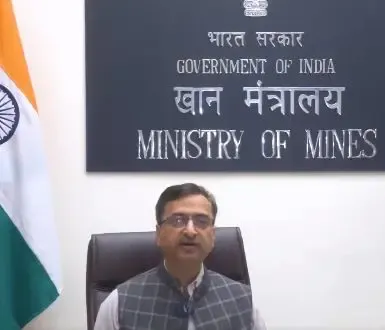What Changes is SEBI Proposing for Algorithmic Trading and Broker Regulations?

Synopsis
Key Takeaways
- SEBI proposes a formal definition for algorithmic trading.
- Changes aim to simplify and modernize stock broker regulations.
- Public feedback is sought until September 3.
- Clarifications on Professional Clearing Members are included.
- Turnover calculations for brokers through subsidiaries are addressed.
Mumbai, Aug 13 (NationPress) The Securities and Exchange Board of India (SEBI) has proposed a series of modifications to enhance stock broker regulations, including a precise definition for “algorithmic trading.”
The market watchdog emphasized that while it has previously issued guidelines on algorithmic trading through circulars, there has never been an official definition within the regulations.
SEBI now aims to define algorithmic trading as any order generated or placed through automated execution logic.
“The proposed definition of ‘Algorithmic Trading’ will be: Algorithmic Trading means any order generated/placed using automated execution logic,” stated the market regulator.
This proposal emerged from a working group comprising representatives from stock exchanges, brokers, legal experts, academicians, and investor associations.
The review sought to clarify regulatory language, rectify inconsistencies, eliminate outdated provisions, and integrate changes in market practices.
These recommendations were reviewed by SEBI’s Intermediary Advisory Committee before being made available for public feedback.
The regulator has also put forward amendments to the definition of ‘Professional Clearing Member’ (PCM).
Currently, PCMs are prohibited from having “trading rights” in their registered exchange, but this term has led to misunderstandings.
SEBI aims to clarify that while PCMs cannot participate in trading activities within that exchange, they retain trading rights as investors.
“At present, according to existing regulation 2(1)(ae), a Clearing member is defined as a person possessing clearing and settlement rights in any recognized clearing corporation and includes anyone with such rights on a commodity derivatives exchange,” the market regulator explained.
“Provided that such a clearing member in a commodity derivatives exchange must become a member of a recognized clearing corporation from a date specified by the Board,” it added.
Another proposed amendment pertains to the turnover calculations for stock brokers operating through subsidiaries registered on other exchanges.
SEBI recommends that this turnover should be excluded from the subsidiary’s figures only if the broker has paid turnover-based fees for five years, along with fees for an additional five-year term, to the relevant exchange.
The regulator is currently seeking public feedback on these proposals until September 3.









